Visiting a Micronation: The Principality of the Hutt River
I had driven hundreds of miles from Perth through nothingness, burnt for hours by the relentless hot, Western Australian sun and now I was standing outside an otherwise unremarkable looking entrance to a remote farm while the dust settled around the car.
But in reality, my destination was far from unremarkable. I had my passport ready in my pocket, and I was about to meet a prince. This dusty, isolated farmstead was, in fact, the border between Australia and the self-declared, a micronation that has fiercely defended its independence since April 1970.
I'm no stranger to breakaway republics, autonomous regions and self-styled countries, but I'd never visited a micronation before. Very soon though, this visit to the Principality of the Hutt River would develop into a very surreal story of wheat, freedom fighters and tax evasion in the baking hot Australian outback.
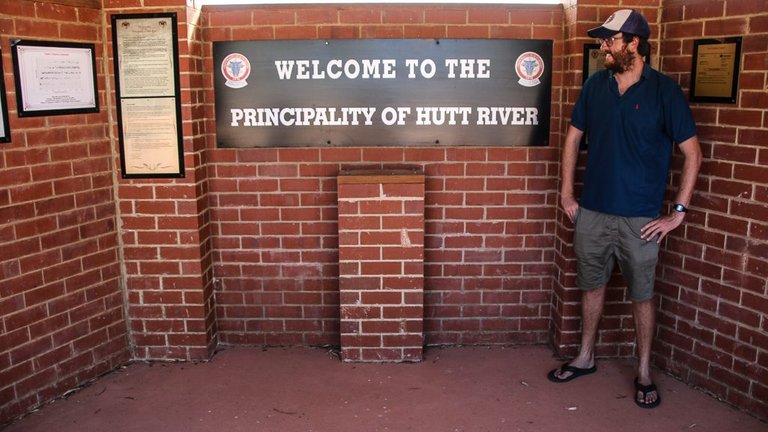
The Self Declared Principality of the Hutt River
Along a dusty, gravel, farming road miles from anywhere of any real note in the outback of Western Australia is the peculiar, eccentric and self-declared Principality of the Hutt River.
"Why do you want to go there?" The woman behind the counter of the tourist information office in the nearby town of Kalbarri had asked when I'd stopped for information on the road leading there.
Why did I want to go there? That was a very good question. I've always been intrigued by the notion of sovereignty. Why does a country have rights over its people? How do nations form and how can a country simply declare itself a 'Principality' and get away with it for almost 50 years? And of course, on a more base level, I thought it would be cool to get a visa in my passport from a micronation and to see the currency they've printed and the flags they fly.
I didn't have the time to explain this, so I said simply: "It looks sort of quirky". It definitely did look sort of quirky.
"Well", said the woman sceptically. "I suppose it's certainly... different".
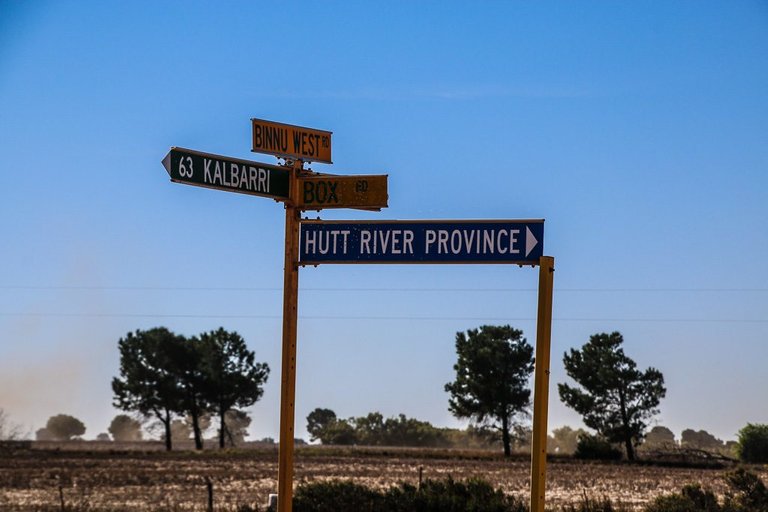
Prince Leonard and a Declaration of Independence
Not many people are aware that there are any 'international' land borders within continental Australia. And, as far as the Australian government would have you know, there aren't. Prince Leonard though, and his small Principality, would have you believe otherwise. It was this disputed land border that I was driving 300 miles north of Perth to find and to hopefully cross.
Leonard Casley, now known to the world as Prince Leonard, declared his farm to be independent on the 21st April 1970. In his previous life, Prince Leonard had been a wheat farmer. This declaration of independence for his 29 square mile homestead was in response to a Western Australian law which drastically cut the quantity of wheat that he was allowed to sell. After he'd already harvested it.
Dissatisfied with government responses, Leonard took things into his own hands, and as any disgruntled citizen should, seceded from Australia, using archaic British laws to justify this, before shortly after declaring himself Prince of this new nation.
For the next years of his life, His Royal Highness Prince Leonard of the Hutt River, as he was now known, would battle the Australian government on and off to prove his sovereignty, for freedom and presumably to avoid paying a lot of tax too.
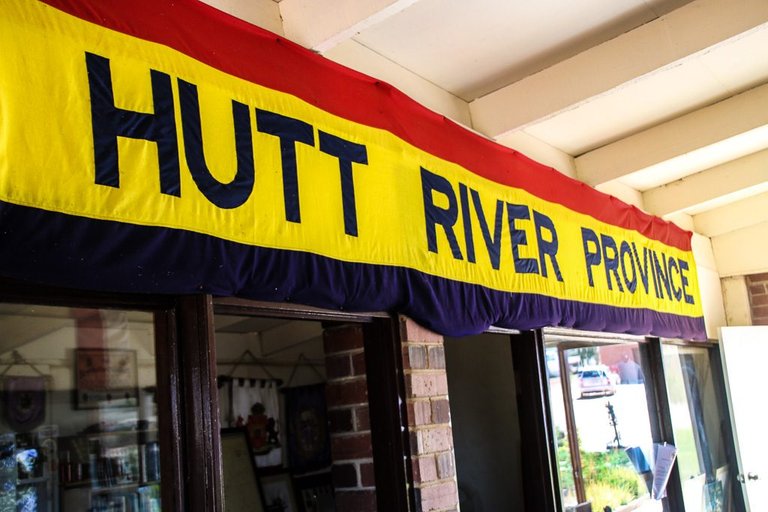
The Abdication of Prince Leonard
I was visiting the Principality during turbulent times.
I arrived at the border to find it unmanned, unguarded and, well, completely wide open. I drove across the line that divides Australia from the Principality of the Hutt River, parked outside the government immigration office and walked on in.
"Good afternoon, Hutt River, Prince Richard speaking."
I'd strolled in just as Prince Richard had picked up the phone. This was all very surreal and I'd only be in the country a few moments. This was the first Prince I'd ever met and I wasn't quite sure of the formalities involved in such a meeting.
I glanced around at the flags, the different currency notes bearing the emblem of the Hutt River and all the pictures of the Principality and the people who lived here through the ages that were proudly displayed across the walls.
Prince Richard hung up the phone. "Welcome to the Principality of the Hutt River", he said, holding out his hand. "I'm Prince Richard", said the smiling prince dressed in a worn out chequered shirt with a dust-blown look about it.
Prince Richard was the son of Prince Leonard, but neither he nor Leonard, it turned out, were the ruling monarch. Prince Leonard had recently abdicated at the impressive age of 91 in February 2017, and the direct heir to the throne was not Prince Richard, but his elder brother, Prince Graeme.
This was turning into a bizarre tale of Princes in the remote Australian Outback and Prince Richard went on to explain that Prince Leonard was currently receiving medical treatment, while Prince Graeme was attending to 'Royal Duties' elsewhere. It would transpire that those Royal Duties were very much related to the impending tax crises that he was being forced to deal with upon taking over the monarchy.
[caption id="attachment_9246" align="aligncenter" width="1024"]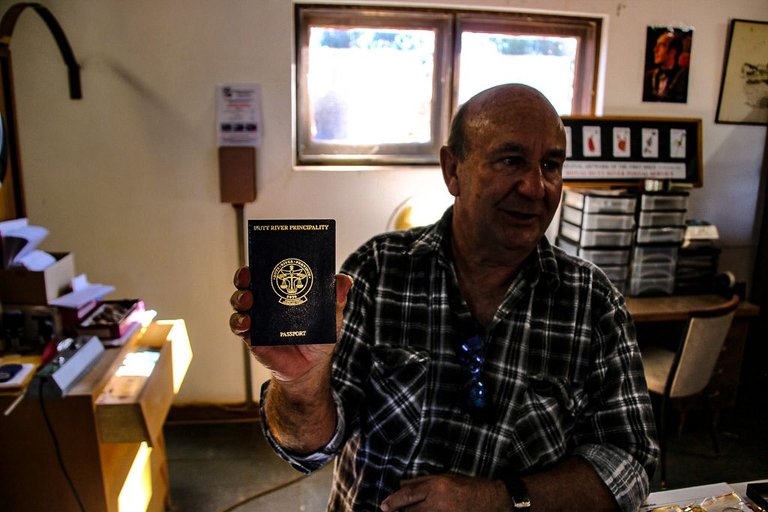 Prince Richard of the Hutt River[/caption]
Prince Richard of the Hutt River[/caption]
Secession and a Declaration of War Against Australia
Prince Richard heartily took it upon his royal self to inform me of the current state of affairs within the Principality while he went through the formal process of granting my visa.
He scanned my passport with a fluorescent blue light, which he claimed was to detect any forgeries, presumably in case I was some sort of Australian government tax spy attempting to enter on a falsified British passport.
I paid my four dollar visa fee - conveniently, although the Principality of the Hutt River does print its own currency, this currency is pegged to the Australian Dollar at a rate of 1:1 - then Prince Richard stamped me into his micronation.
On top of the admittedly small visa fee, there were plenty of souvenirs for sale in the Principality's immigration office and Prince Richard told me how this was still a working farm, but a lot of their income relied now on tourism.
And they had a constant battle with the Australian government over the issue not just of sovereignty, but of tax.
At one point, way back in 1977, the Principality of the Hutt River had even declared war on Australia. A few days later though, Prince Leonard declared the war over, claimed that the Australian government were the ones that had backed down and that due to certain International Laws convened at the Geneva Convention, Australia now needed to recognise the undefeated nation of the Principality of the Hutt River, thereby conferring upon them sovereignty.
"War was declared, but not for the purpose of war. But to fight injustice", Prince Richard explained when I asked why exactly this micronation had declared war on Australia. No fighting had taken place, although a fighter jet may or may not have flown over the farm. It was a political move by Prince Leonard, to find a way to gain international recognition for his fledgeling nation. And it wouldn't be the last attempt either.
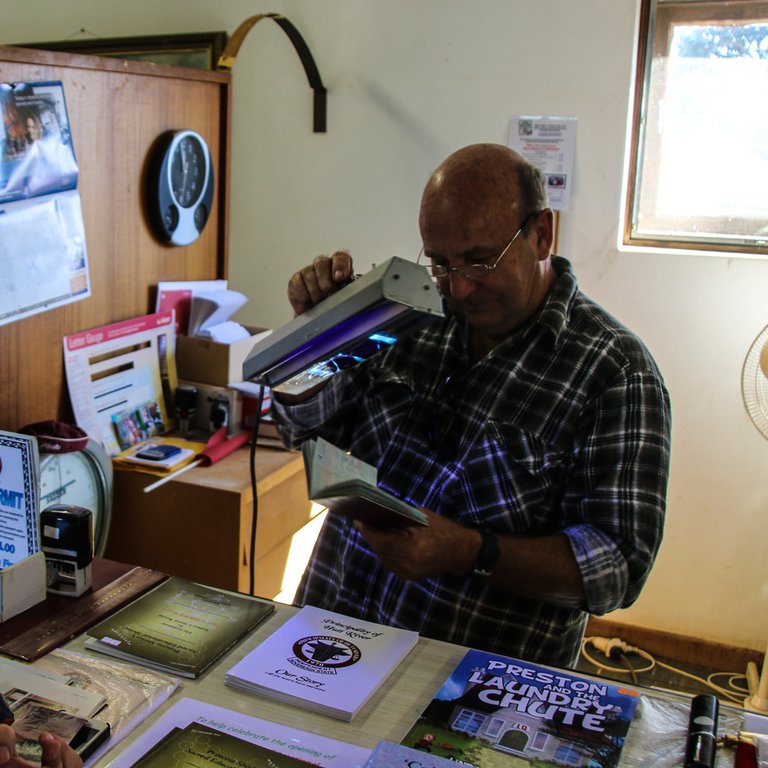
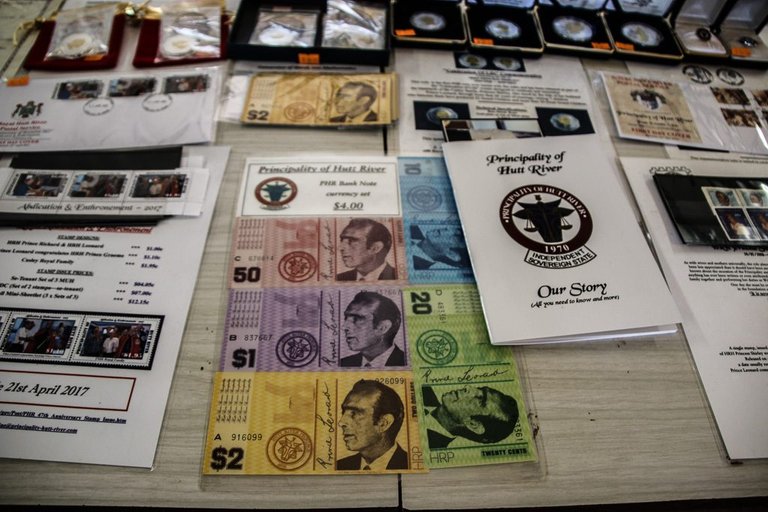
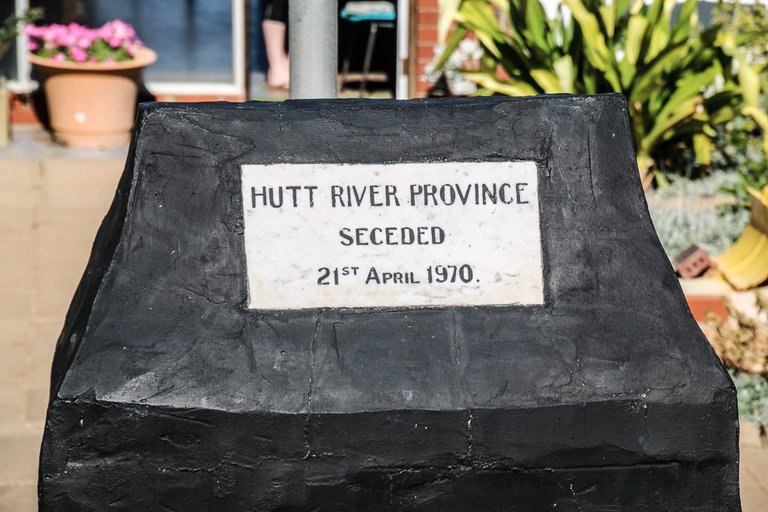
Statues and Megalomania
The Principality of the Hutt River is a strange place to visit as a tourist. After receiving my visa and history lesson from the affable Prince Richard, I was left to explore the nation on my own account.
The Principality encompasses an area of 29 square miles, which according to the nation's website includes such places as "Lake Beginning, Mount Secession, Lake Serenity and Wild Boar Gorge". Prince Leonard had named all of these places, and as any newly independent nation must, it seemed that he wanted to create a legend, a nation-building story to pass on to future generations.
Prince Leonard also had a huge bust of himself commisioned. He lavished titles upon himself and his family, and upon anyone who could help their cause in the international community. Surely this was about more than freedom, but about power too? Or was it all simply an elaborate tax evasion scheme?
I wanted to know if these Princes of the Hutt River really believed in the principles of freedom that had led to their declaration of independence; or if they just enjoyed being called Princes and paying less tax than their neighbours? Around the farmstead, I found few answers and even more perplexing sights.
Inside the local church, I found a strange mixture of Christianity, combining bizarrely with local lore. Religious epics painted on the walls including portraits and caricatures of members of the Principality.
Prince Leonard it transpired, was also a mathematician, having constructed his own Fibonacci Sequence that was on display in the Education Shrine dedicated to the late Princess Shirley.
In the hot, desert-like climate I looked out across the Principality of the Hutt River and wondered what motivated all of this, and wondered as the red dust blew around me and I stared into the stone edifice of His Royal Highness Prince Leonard, if I would ever get to the truth of all this nation-building business.
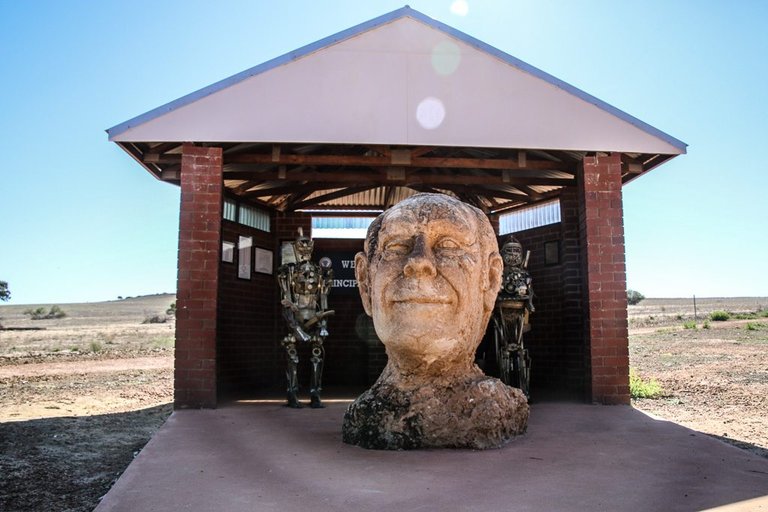
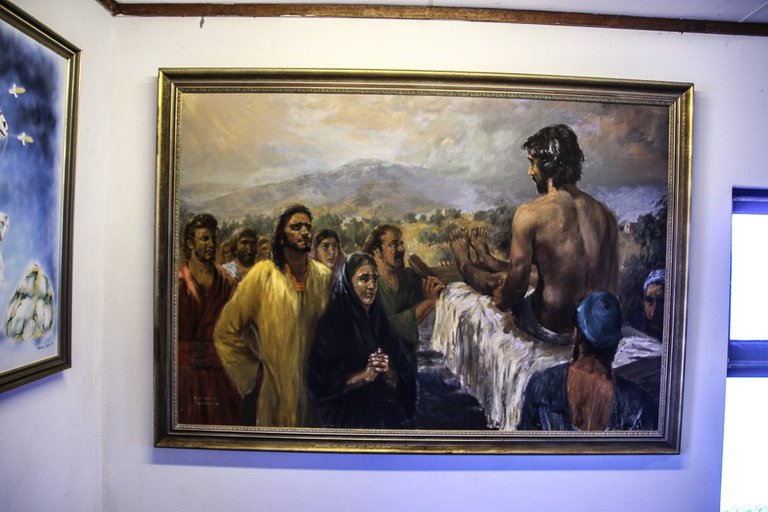
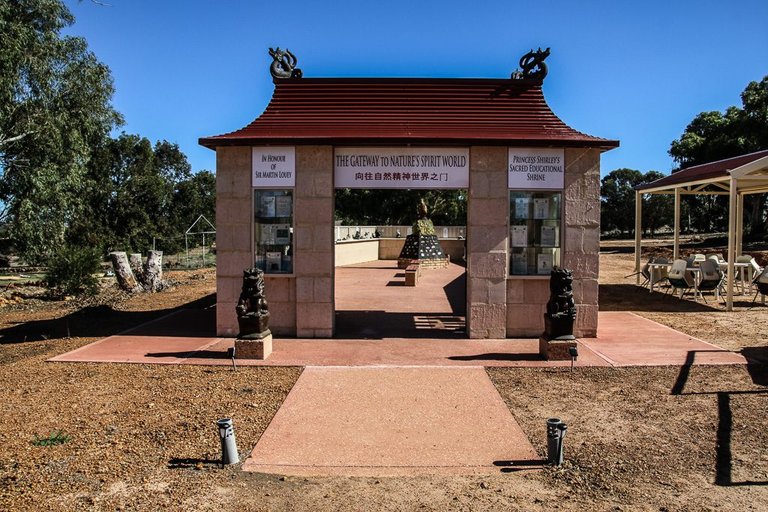
A Sovereign Nation
Despite the peculiar cult of personality that seemed to have grown and of course the somewhat 'quirky' culture of the country, in the history room I began to see another side of the Principality that I had missed until now.
There were letters to the princes from all over the world. There was even a letter from Queen Elizabeth II herself. The majority of the letters on display though were from people in countries such as Taiwan and places like Hong Kong, where it appeared there was an affinity with authoritarian bashing micronations.
Indeed, the size of the Hutt River corresponds roughly to the size of Hong Kong, although the populations are somewhat different in number.
The Principality, I found out from the pictures on display, had also once opened a short-lived diplomatic mission in Hong Kong, while Prince Leonard had somehow even visited the Vatican on a diplomatic passport.
The Principality of the Hutt River, it would seem, was more legitimate than most micronations, and their pursuit of freedom was important enough for over 6000 people to sign up for citizenship worldwide.
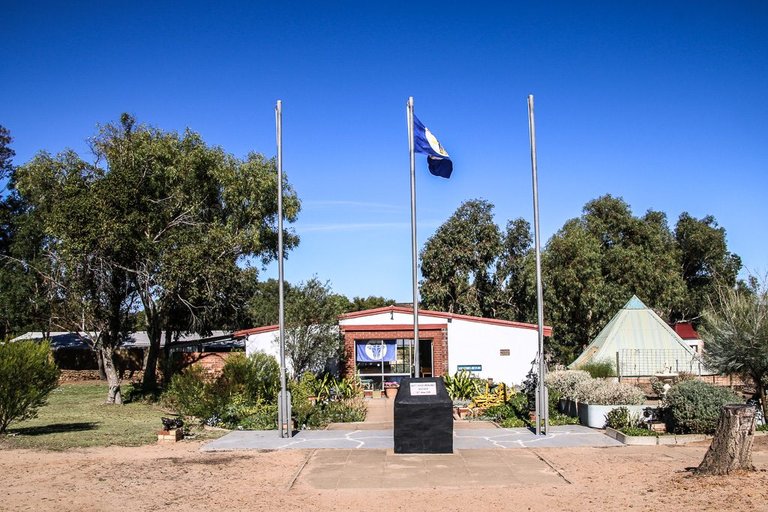
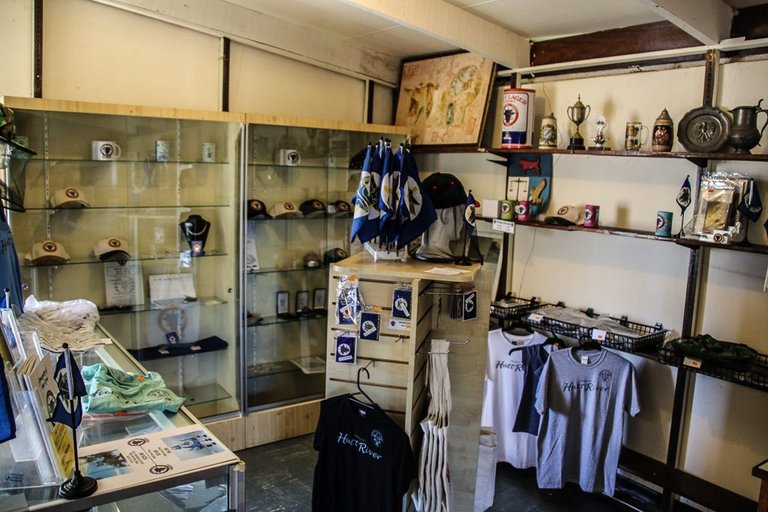
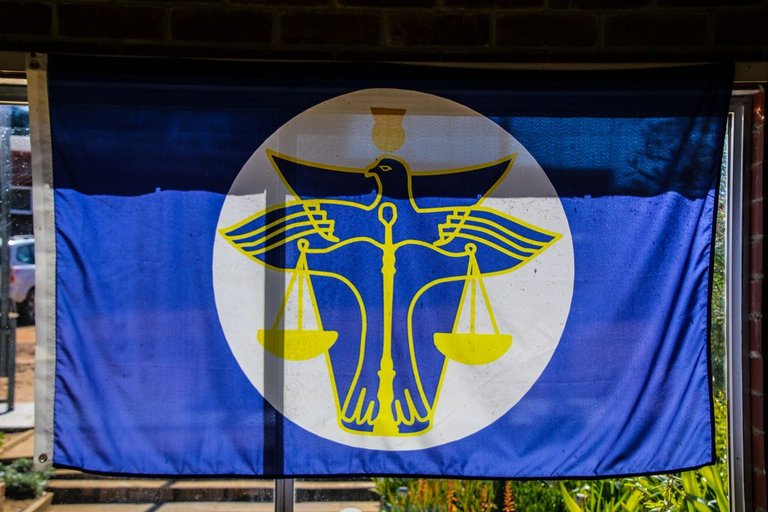
The Pursuit of Freedom in the Australian Outback
Whichever way it's looked at and whichever laws are cited to justify it, the self-declared independence of the Principality of the Hutt River and the stubborn refusal of Prince Leonard and his successors to give in to the stronger power of the Australian government is a mighty example of the pursuit of freedom. Even if, at the end of it all, it was all done to evade tax.
After walking through the history museum I was compelled enough to buy my own little souvenir from this quirky little micronation, something to add to the passport stamp and for me to look back on fondly to remember the heroic if bizarre exploits of this ragged band of freedom fighters deep in the Australian Outback.
I bought a ten dollar t-shirt from Prince Richard. A mighty souvenir, the proceeds of which will now surely fuel any subsequent wars of independence with Australia over the inevitable tax evasion cases that were soon going to court.
With a firm handshake and a wish of good luck, Prince Richard saw me to the border of his nation, where I drove back across international lines and into the territory of the Commonwealth of Australia, the flag of the Principality of the Hutt River fluttering in the wind behind me on the farm.
It's a surreal story, a story of wheat, tax, freedom and power in remote Western Australia. And it's a story that despite the many tumultuous pages already written, has very much yet to end.
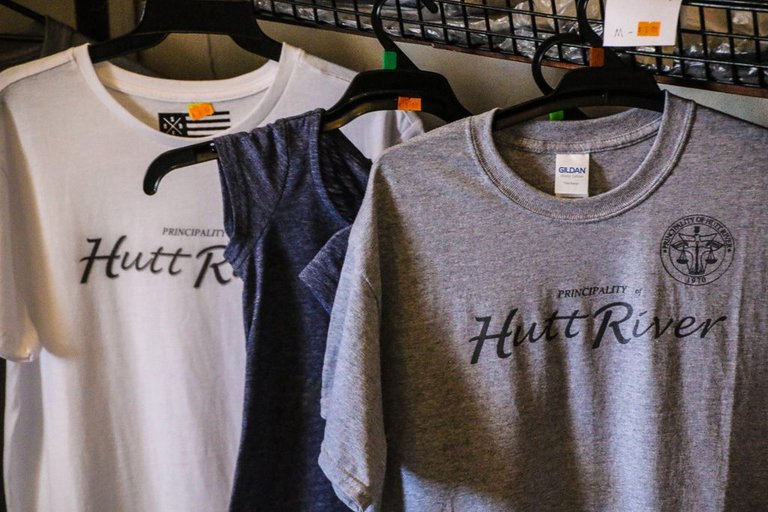
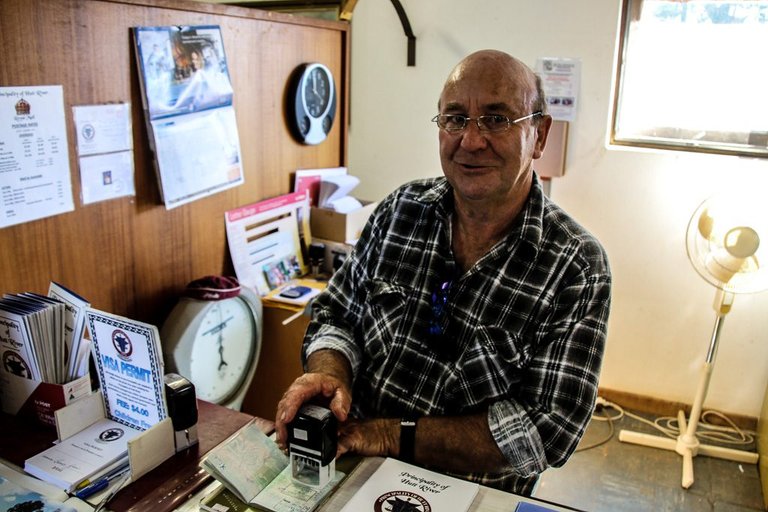
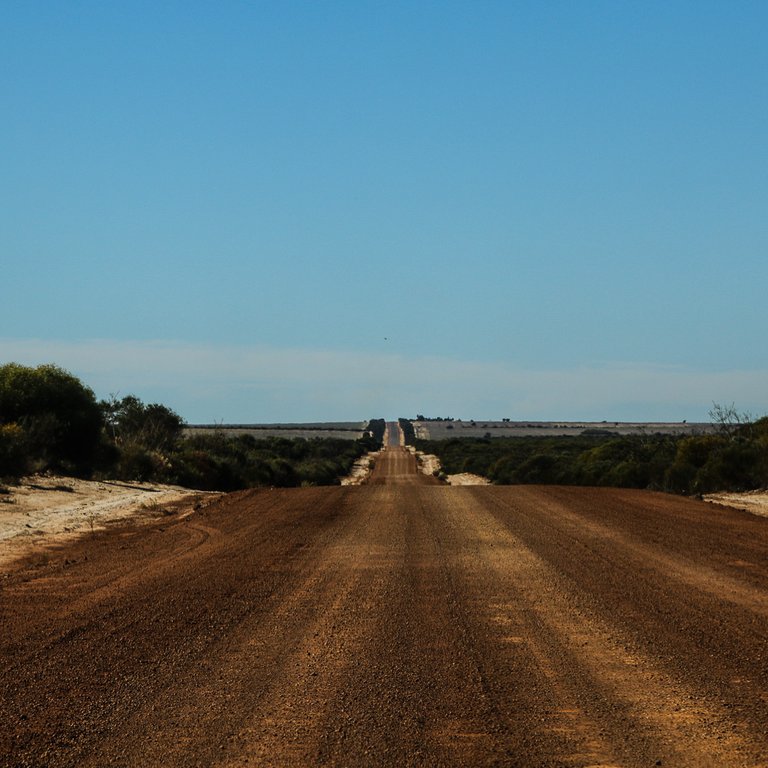
All Words and Photos by Richard Collett
This article originally appeared on my website Travel Tramp!
Well written. Only a very special kind of person establishes a micro-nation. The coat of arms is at the same time a cow and falcon... but it also disturbingly resembles a downward-pointing pentagram.